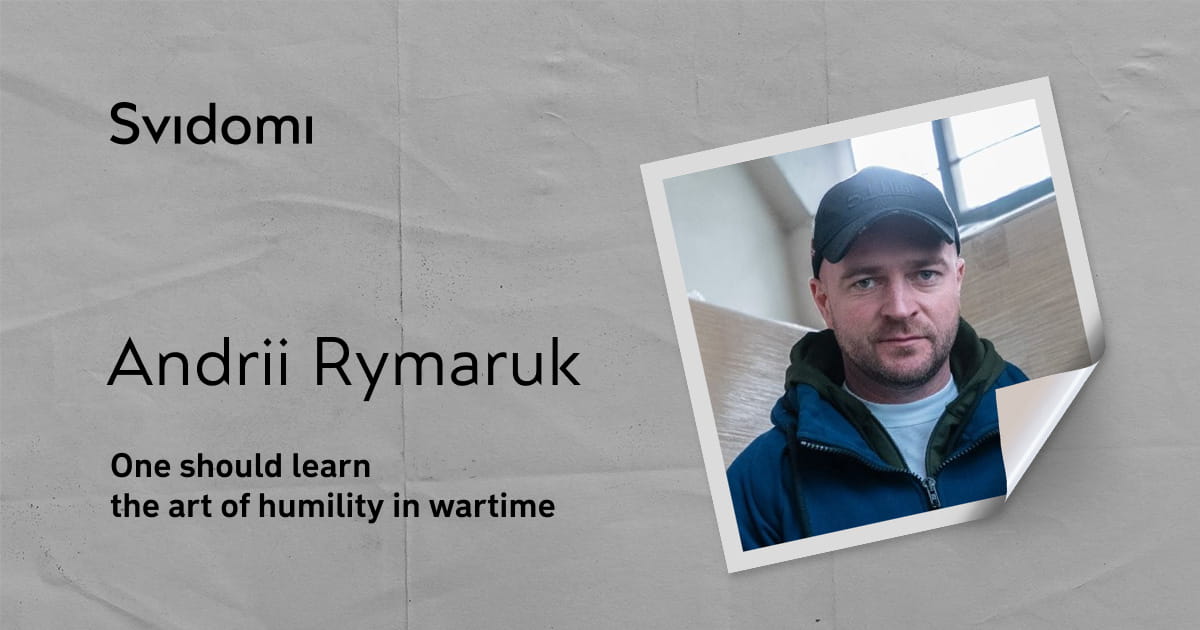One should learn the art of humility in wartime

“We are told about humility in the church and at business training, but we need to learn it in wartime. Wherever you might be during the war and in whatever status”.
Recently, I have been trying to understand the restraint, the firmness of emotions. I was watching two girls of school age. I was surprised and tried to understand what drives their firmness. They coldly looked at people who were in tears. Everyone was gasping for air, some even fainted, but they were steadfast. When burying their father, they breathed at the top of their lungs.
Over the past six months, we have experienced what we have talked about for so long. Some were constantly worried about it, some thought about it, some warned others. Most of the population has caught up with this damn reality of war. The existence of suffering, of unspeakable pain. We didn't just flee from our own homes. Even the ones who stayed were running from the truth and awareness. We repeated to ourselves — "it is impossible". We did not want to accept the loss.
Over time, we got overwhelmed by the waves of loss. Then, one by one, they erased everything in our minds: memory, reflexes, and emotion.
It was not the first time those two girls had been to a funeral. Weeks, months earlier, they contemplated the same picture when they buried their godparents and relatives who had also died in the war. In a few months of their underage lives, they saw more grief than adults. They wouldn't let their emotions get the better of them because their crying mother was standing next to them. And somewhere among others, there were their peers — orphans. The war had taken both fathers and mothers from their classmates.
They approached their friends when almost everyone had left the cemetery. They hugged them shyly, in a purely youthful way, without any words. They continued to breathe, all together, at the top of their lungs.
Freedom of thought and action drove them. After the words of condolence, the children began to discuss the next school year. They remembered how they used to run around the graves playing hide and seek when they were very young. At this point, I came back to reality. Without holding back tears, I remembered my childhood, the way I used to do it myself: running, hiding behind wreaths with crosses.
I gave full vent to my emotions and cried again and again. I did not gulp air like all adults but mourned my friend, breathing deeply.
Such a short story about freedom. Freedom of thought. We often restrain that kind of freedom of feelings, reflections, and emotions when we want to express pain or love, excitement or hatred, the reality, conscious or hidden behind dozens of locks of complexes. The more we're afraid to do it, the more we're scared to do it next time. So here is an example of freedom: you can breathe to the fullest and do what even the Universe or the Lord, together with all the archangels, might envy.
We constantly train to breathe freely, forgetting that this is where life begins. It is the first human reflex in the world since birth. In the same way, all people breathe. I like people who breathe freedom, grief, fear, and happiness — those who know the price of loss and victory.
It's all about the humility that the unspeakable sorrow of war gives us! We learn balance and restraint and continue to live by discussing tomorrow's workday, recalling how we hid behind the crosses as kids. We rejoice at the victories on the frontlines while staying silent about the price they cost us to breathe fully. We keep thinking — what have we done for this, and have we done enough?


